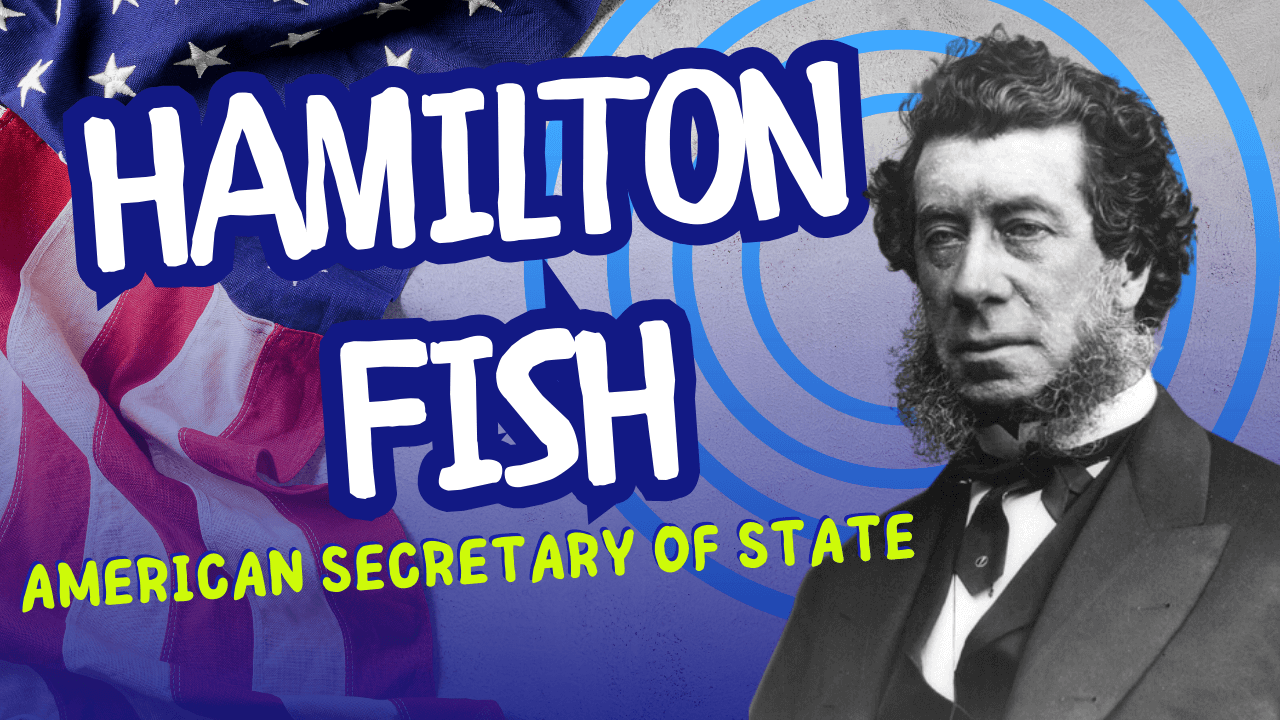Discover the compelling life of Hamilton Fish, a prominent figure in American history. From diplomacy to public service, explore the legacy of this statesman’s impactful contributions. 🇺🇸📜

Hamilton Fish; (1808-1893), American secretary of state. He was born in New York City on Aug. 3, 1808, the eldest son of Nicholas Fish. He graduated from Columbia College in 1827 and was admitted to the bar. Entering politics as a Whig, Fish served New York as congressman (1843-1845), lieutenant governor (1848), governor (1849-1850), and finally U.S. senator (1851-1857). He opposed the Kansas-Nebraska Bill repealing the Missouri Compromise, but during the 1856 campaign, after the Whig party broke up, he reluctantly became a Republican. Withdrawing from active politics, he served in minor posts during the Civil War.
In March 1869, President Grant appointed Fish secretary of state, and he remained in this office through two presidential terms. Fish respected Grant but deplored the frequent scandals in his administration. Grant valued Fish’s prestige as an ornament to an otherwise shabby cabinet.
Fish’s greatest achievement as secretary was the Treaty of Washington (1871) with Britain, which settled many accumulated questions. These included the Alabama claims, the San Juan boundary dispute over islands in Puget Sound, and the question of inshore fishery rights in Canadian waters. The most serious of these problems, the Alabama claims, arose from Britain’s unneutral behavior during the American Civil War; it was settled in 1872 by a special arbitration tribunal in Geneva, Switzerland, which awarded $15 million to the United States.
Because Fish was eager to obtain an indemnity for the British lapse from neutrality in the Alabama claims case, he naturally threw his weight against his own country’s taking sides with the Cubans in their 10-year rebellion against Spain (1868-1878). Grant and some of his other advisers sympathized with the rebels, but Fish managed to prevent a formal recognition of Cuban belligerency. In 1873, however, he defied Spain after the capture of the Virginius and eventually obtained reparations. Fish made little effort to restrain Grant from his attempt to annex Santo Domingo, counting rightly on the opposition of anti-imperialist senators to defeat any annexation treaty.
After retiring in 1877, Fish remained an “elder statesman” in the conservative wing of the Republican party. He died in Garrison, N. Y., on Sept. 7, 1893.